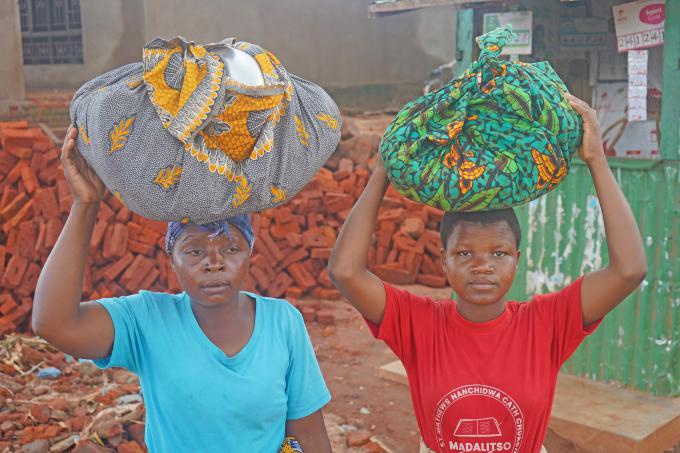Malawi schools bear the brunt in Cyclone Freddy aftermath

“We were sleeping in our house when we were woken up by a thundering noise from the mountain,” explains 13-year-old Jane*, a Primary School Grade 8 learner in the south west district of Mulanje in Malawi’.
Panicking, her family quickly descended onto the hilly terrain where a primary school stands. Behind them, raging waters, accompanied by rolling boulders, quickly obliterated her family’s house and the entire Mujiwa Village, leaving her family of six destitute with the clothes on their backs as their sole possessions.
“A lot of people died here, including a lot of pupils from the school,” she says, adding that she, like most of her classmates, now have to contend the task of rebuilding following the loss of books and clothes in the floods.
Jane and her Grade 8 classmates are due to sit for their final examinations on May 10. But, without the vital books and infrastructure, the prospects look bleak.
“This is going to be tough because it has affected us badly. Ours was a really good school but now all the property and books are gone. Life will be difficult,” she says. “These exams will be difficult and it makes it difficult for some of us to pursue our dreams.”
With their house and possessions gone, Jane and her family, are part of the over 1,000 affected people now seeking at the primary school.
“But life at the camp is very tough. There is lack of sanitation as there is only one functional toilet and there is a now a bigger risk of open defecation and we might catch diseases here, thereby adding more problems on top of our existing situation,” she says.
On Wednesday, she joined her mother and other villagers for the 10 kilometre walk to Limbuli to receive aid—a blanket, cooking utensils and some food—from a Muslim charity.
“We are grateful for every donation that is coming our way and this gives us a stronger resolve and hope in life,” she says.
Pearson Makasu, headteacher at the primary school, says the school has lost 25 primary and 13 nursery school pupils in the flooding. The school had a total enrolment of 1,156 pupils with 17 classes, 17 teachers and eights classrooms. Three of the seven teachers’ houses, including his own, were washed away.
He sheds a tear when he describes the ordeal of the night of March 13 and the aftermath that followed.
“Earlier in the evening, 61 villagers came to the school to seek shelter because they felt that the heavy rains would lead to a disaster. I gave them shelter at the school and then went home to sleep,” he explains.
Around 9 pm, Makasu says he was awoken up by loud train-like thundering noises.
“That is when I realized that were in trouble. So, I quickly grabbed my son and wife and we started running to higher ground. If we had delayed by a few seconds, we could have been washed away because we actually saw the water behind us as we fled up the hill,” he says.
The only possession that he was able to rescue was his mobile phone which he was using for lighting.
After waiting for six days at the school with no assistance in sight, Makasu eventually decided to move his family to a relative’s house at Limbuli but he says it will take time to get the school open again.
“There are several factors, currently the school shelters people that are destitute. If we are to open, where will they go? Secondly, the river diverted into the path of the school and now runs on the school grounds which is dangerous for our learners. Thirdly, mostly teachers and pupils have to cross rivers to get here, but with bridges and roads washed away, how will they get here?”
Makasu, who has been a teacher for 23 years, says this is the worst disaster that he has witnessed in his life.
“People here have lost everything; livestock, crops, property and family members. It will be hard to rebuild their lives, they will need a lot of assistance. More especially my students who witnessed the disaster, they will have a lot of trauma and will need counselling,” he says.
As of Monday, at least 437 schools had been affected from 15 education districts.
“At least 139,929 learners have been affected, of which 23,066 are adolescents and 1,853 are learners with disabilities and at least 307 teachers have been affected. Also, 242 schools are used as internally displace people camps,” the Ministry of Education said in a statement.
The ministry adds that the current total number of learners in the affected districts is 139,929 for both primary and secondary schools.
The Department of Disaster Management Affairs (DoDMA) update on the devastation caused by Cyclone Freddy indicates that reports from the 15 affected councils, the number of displaced people is at 508,244, with 534 camps set to accommodate the displaced.
On Monday 21 March, the death toll stood at 499, with 1,332 injuries. The number of reported missing persons was at 427.
* We have not used the child's real name on safeguarding grounds
 Malawi
Malawi